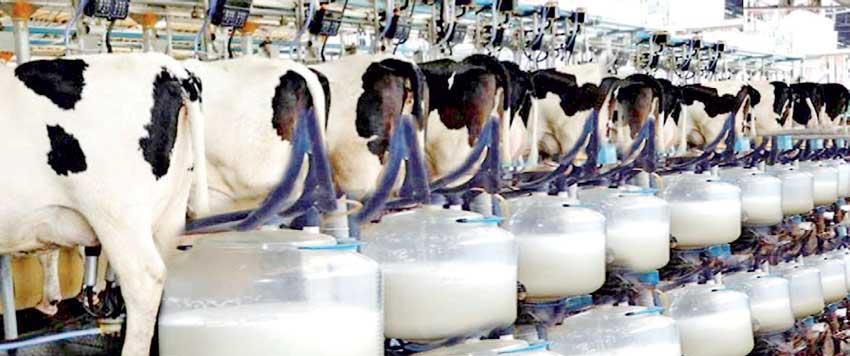21 Apr 2022 - {{hitsCtrl.values.hits}}

As the prevailing foreign exchange crisis in Sri Lanka has severely impacted the country’s dairy industry, the All Island Dairy Association (AIDA) yesterday called for immediate action to prioritize the importation of raw materials to help sustain the industry’s future.
An AIDA statement said the rising costs, scarcity of feed, vitamins, fuel and fertilizer, and the difficulty in maize importation has greatly impacted the industry’s survival.
“Proper micronutrients and vitamins from quality feed is an essential part in our industry as the animals play an integral role in the supply chain. It is imperative that feed such as maize and silage is readily available as it would greatly assist in sustaining the industry. However, the dependency on importing these commodities, and the restrictions placed on imports due to the forex crisis is crippling the industry,” AIDA President Binesh Pananwala said.
The lack of quality animal feed has largely disrupted the dairy industry’s supply chain. AIDA pointed out that if the livestock does not receive essential micronutrients and vitamins from maize and silage, the physical wellbeing of the animal is affected, which thereby affects milk production.
Veterinary professionals have continuously expressed their growing concern for the wellbeing of these animals due to the shortage of feed and medicines such as antibiotics and anaesthetics required for operations.
“The impact of the forex crisis is felt in multiple facets of our industry. The industry is already struggling to sustain itself and due to the lack of fuel, storage facilities, fertilizer, and feed, we are unable to meet the demand for fresh milk and powdered milk. Our production has reduced a great deal already and if not rectified, will spell disaster going forward,” AIDA Consultant and General Manager A.C.H Munaweera said.
The government has provided permits for the importation of maize on a case-by-case basis; however, fodder importers and dairy companies have struggled to sustain imports due to the forex shortage. The shortage of foreign exchange makes it difficult for banks to honour letters of credit (LCs) for importers to bring in the necessary raw materials needed to sustain the industry.
Nishantha Jayasooriya, immediate Past President of AIDA, also shared his thoughts on the crisis. “The entire industry has felt the tremendous impact of the forex crisis. The livestock farmers, producers, input suppliers and distributors alike have all been affected by rising costs and lack of resources. If conscious decisions and changes to fiscal and monitory policy are not made, the industry will suffer even further as it will be unable to meet the demand for both fresh milk and milk powder.”
The local production of milk is drastically falling due to the lack of quality feed, and the supply of imported milk is reducing due to the rising prices. Currently, locally manufactured feed is used to maintain the livestock. However, due to the lack of fertilizers and various other concerns, the supply of feed is diminishing.
15 Nov 2024 6 minute ago
15 Nov 2024 37 minute ago
15 Nov 2024 1 hours ago
15 Nov 2024 2 hours ago
15 Nov 2024 2 hours ago